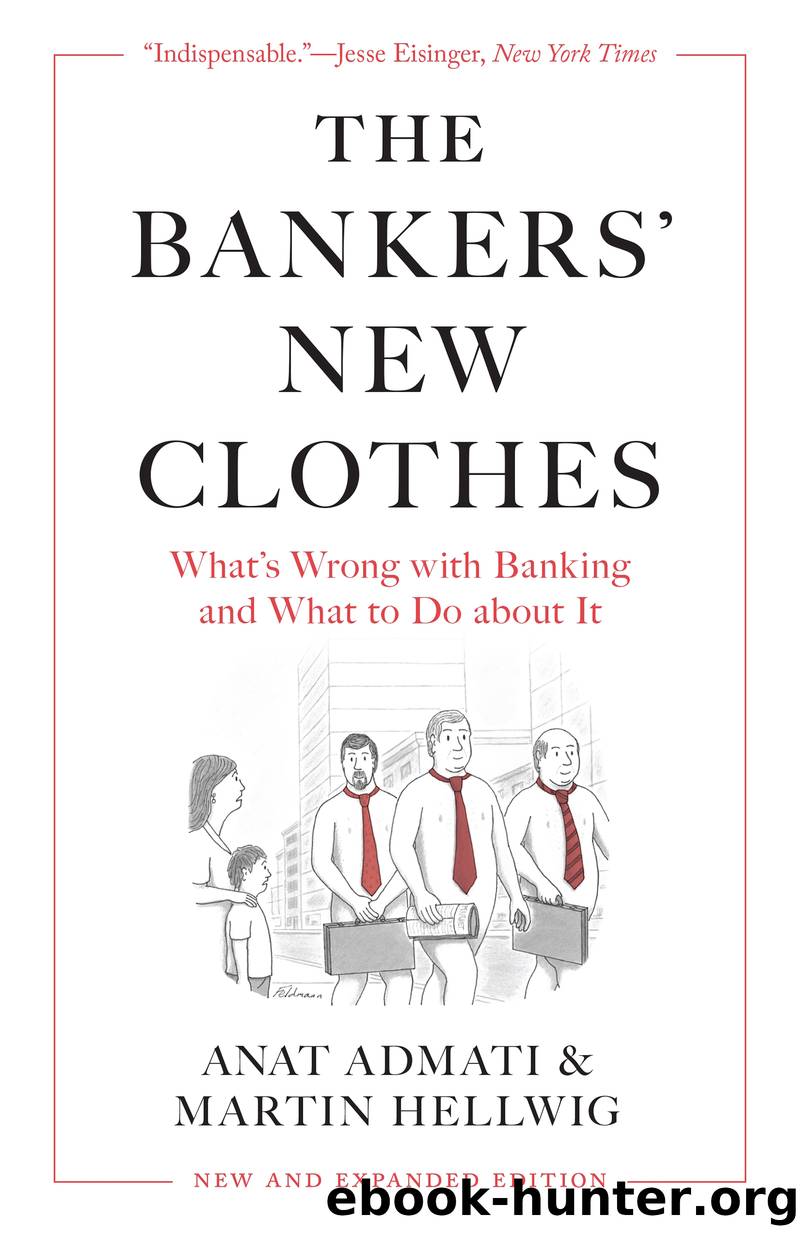The Bankers' New Clothes by Anat Admati

Author:Anat Admati
Language: eng
Format: epub
Publisher: Princeton University Press
Published: 2023-10-06T00:00:00+00:00
32. In the 1990s, the effect of government guarantees on borrowing costs was at the center of complaints against the Landesbanken, public banks in Germany that enjoyed such guarantees. For these banks, rating agencies actually published separate credit ratings with and without the guarantees. Typical ratings would be AAA, the best possible, with the government guarantees, and CCC, many grades lowerâin fact âjunk bondâ statusâwithout the guarantees. Because this effect gave the Landesbanken a substantial advantage in borrowing, the European Commission ruled that the (explicit) guarantees represented a form of state aid that distorted competition and was therefore incompatible with what is now the Treaty on the Functioning of the European Union (Art. 107). Germany initially contested the Commissionâs ruling but eventually gave in. Avoiding a lengthy trial before the European Court of Justice, in 2001 the Commission and the German government agreed that, from 2005 on, no further guarantees would be given. See European Commission, âGermany Agrees on the Implementation of the Understanding with the Commission on State Guarantees for Landesbanken and Savings Banks,â press release, February 28, 2002, http://europa.eu/rapid/pressReleasesAction.do?reference=IP/02/343&format=HTML&aged=1&language=EN&guiLanguage=en, accessed September 28, 2012. In the United States, a similar effect could be observed with Freddie Mac and Fannie Mae, two of the so-called government-sponsored enterprises. For years these banks enjoyed high credit ratings, between A and AAA, even though they were very risky and had little equity. The rating agencies were confident that, if necessary, the U.S. government would bail them out, and this is exactly what happened in 2008; see Acharya et al. (2011a) and Chapter 17 of FCIC (2011). The importance of implicit guarantees for the funding costs of banks, particularly those that are considered too big to fail, is discussed in Chapter 9.
Download
This site does not store any files on its server. We only index and link to content provided by other sites. Please contact the content providers to delete copyright contents if any and email us, we'll remove relevant links or contents immediately.
International Integration of the Brazilian Economy by Elias C. Grivoyannis(109952)
The Radium Girls by Kate Moore(12017)
Turbulence by E. J. Noyes(8040)
Nudge - Improving Decisions about Health, Wealth, and Happiness by Thaler Sunstein(7690)
The Black Swan by Nassim Nicholas Taleb(7106)
Rich Dad Poor Dad by Robert T. Kiyosaki(6607)
Pioneering Portfolio Management by David F. Swensen(6288)
Man-made Catastrophes and Risk Information Concealment by Dmitry Chernov & Didier Sornette(6004)
Zero to One by Peter Thiel(5786)
Secrecy World by Jake Bernstein(4740)
Millionaire: The Philanderer, Gambler, and Duelist Who Invented Modern Finance by Janet Gleeson(4465)
The Age of Surveillance Capitalism by Shoshana Zuboff(4275)
Skin in the Game by Nassim Nicholas Taleb(4237)
The Money Culture by Michael Lewis(4198)
Bullshit Jobs by David Graeber(4179)
Skin in the Game: Hidden Asymmetries in Daily Life by Nassim Nicholas Taleb(3989)
The Dhandho Investor by Mohnish Pabrai(3758)
The Wisdom of Finance by Mihir Desai(3731)
Blockchain Basics by Daniel Drescher(3574)
